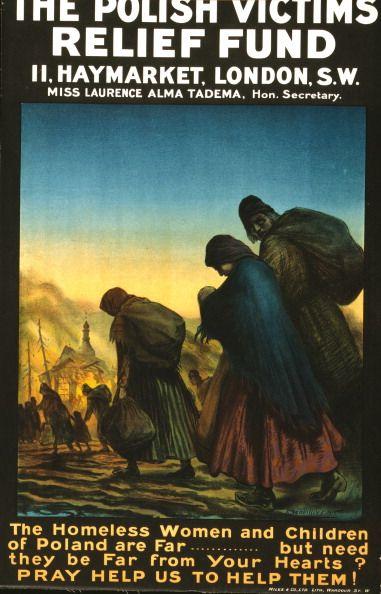Presentation by Elisabeth Piller on "Rewriting the History of the Great War: Humanitarianism as a History of Failure: Herbert Hoover and The Commission for Relief in Poland”
Abstract:
The history of Great War humanitarianism is generally written as a success story. Unprecedented suffering evoked an equally unprecedented humanitarian response, which provided comfort to millions of war sufferers and shaped humanitarian practice for decades to come. Few individuals embody this success story like the American businessman Herbert Hoover. During the war, his Commission for Relief in Belgium saved eleven million civilians in Belgium and Northern France from deprivation and his American Relief Administration repeated this feat all over Europe in the early 1920s. The war turned Hoover – the ‘great humanitarian’ – into an international celebrity and helped secure his election as U.S. President just a few years later. For many historians, Hoover’s large-scale, business-oriented humanitarian programs presaged the ‘humanitarian industry’ of today.
And yet, next to Hoover’s celebrated triumphs lies a neglected history of defeats. The Commission for Relief in Poland, or, more precisely, the fact that it never came into being, is surely among the most striking of these failures. This chapter will trace American efforts to establish a Commission for Relief in Poland from 1915 onward and explore why they ultimately failed to establish an effective aid program on behalf of the German-occupied country. By comparing Hoover’s successful negotiations for a ‘humanitarian corridor’ into German-occupied Belgium with his frustrated efforts to gain access to Poland, the chapter shows how great power interests demarcated humanitarian action in the era of the Great War. In addition, it will emphasize the importance of global public opinion – successfully mobilized on behalf of Belgium but not on behalf of Poland – in shaping modern humanitarianism.
In all, the paper aims not only to throw light on Hoover’s under-researched humanitarian endeavour in Poland but to challenge the way we write the history of Great War humanitarianism more generally. In terms of archival evidence and effective story-telling it is more gratifying to craft a tale of success than one of defeat; but it is arguably humanitarian failures that tell us most about the era of the Great War.
Speaker bio:
Elisabeth Piller is Assistant Professor of Transatlantic and North American History, Albert-Ludwigs-Universität Freiburg. Her work on transatlantic relations and foreign policy has appeared in the Journal of Contemporary History, the Journal of the Gilded Age and Progressive Era and Diplomatic History. She is the recipient of the 2019 Franz-Steiner-Prize, which is awarded biannually by the Franz Steiner Verlag and the German Historical Institute Washington, DC to an outstanding scholarly book manuscript in the field of North American studies or transatlantic relations from the early modern period to the present. Her first monograph Selling Weimar. German Public Diplomacy and the United States, 1918–1932 is forthcoming in January 2021. She is currently working on her second book, a study of U.S. humanitarian aid and transatlantic relations in the 20th century.
The event will take place as a part of the MA colloquium of the History Department online via Webex on November 23, 2020, 6.15 pm-7.15 pm (a 30-minute presentation by the speaker and a 30-minute discussion)
Since the amount of spots is limited, please, register for the event at yulia.maximenkova@fu-berlin.de.
Zeit & Ort
23.11.2020 | 18:00 c.t. - 20:00
WebEx Online Event


